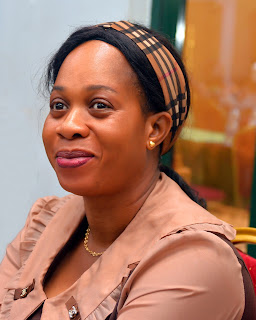Marriage, traditionally refers as a sacred and lifelong union, is under increasing strain in contemporary Nigerian society. Once seen as a bedrock for family stability and societal cohesion, the institution of marriage now finds itself vulnerable to a growing trend, divorce. Events from within and outside Nigeria reveal that the rate of marital breakdown is rising at an alarming pace, prompting an urgent question: What is going wrong?
During courtship, couples often project themselves as generous, loving, and attentive. The love feels endless, and commitment unwavering. Yet, not long after tying the knot, many discover a different reality. The very individuals who once could not go a day without speaking to each other suddenly become emotionally distant, sometimes even hostile. Is marriage really then an ‘eye-opener’, as the popular saying goes? Or are societal, psychological, and cultural forces silently undermining relationships from within.?
While Nigeria lacks a centralised, up-to-date national database, anecdotal evidence, court filings, and media reports suggest a marked increase in divorce rates, particularly in urban areas.
In Ogun State, data from the High Court divisions between 2017 and 2020 shows a sharp rise in divorce petitions, from 535 in 2017 to 1,016 in 2019.
Furthermore, the Hill Deep Dive report estimated that there are about 15,000 formal and informal divorce or separation disputes, annually, in the state, suggesting that most separations occur outside formal courts, with many families choosing informal resolutions or simply walking away.
Such breakdowns are not without consequence, as findings have shown that children from broken homes often suffer academically and emotionally, with higher levels of psychological distress and lower academic performance.
Beyond infidelity and financial stress, many marriages suffer due to lack of preparation. Too many couples focus on planning a glamorous wedding but spend little time evaluating emotional compatibility or receiving premarital counselling. According to marriage therapists, many divorces could be prevented with better pre-marital education.
Changing gender roles has also been identified as a contributory major factor. As more Nigerian women attain higher education and financial independence, they are less willing to endure disrespect, abuse, or irresponsibility from partners.
Cultural and religious pressures also complicate matters. Many marry to fulfil family or religious expectations, only to find themselves ill-equipped to navigate the complexities of shared life. Add to this the widespread stigma around seeking therapy or help, and it is no surprise that unresolved issues fester into full-blown crises.
Social media, though a viable tool of change, has also emerged as a powerful destabiliser. A 2022 study in Ota, Ogun State found a strong correlation between social media use and family discord, noting that online behaviours often fueled suspicion, emotional withdrawal, and infidelity.
The consequences are clear : emotionally unstable children, fractured family units, and increased social tension. In response, Ogun State is strengthening it’s Family Courts to better manage domestic disputes and also support affected individuals. What then can be done?


